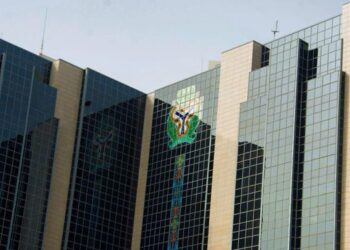The rising cost of living has pushed Nigerians to borrow about N740 billion from banks between January and September this year.
An analysis of the quarterly economic reports of the Central Bank of Nigeria (CBN) shows that consumer credit rose from N2.31 trillion by the end of the fourth quarter of 2022 to N3.05 trillion by the end of the third quarter of 2023.
This shows an increase of 32% or N740 billion in nine months as Nigerians struggle with unwavering inflation and waning purchasing power.
Steady Quarterly Increase
- Consumer credit has been on the rise throughout the year, increasing by 1.7% to N2.35 trillion by Q1 2023, from N2.31 recorded in Q4 2022.
- It further rose to N2.6 trillion by Q2 2023, showing a quarterly increase of 10.6%.
- By Q3 2023, there was a quarterly increase of 17%, reaching an all-time high of N3.05 trillion.

Personal loans lead
According to the CBN’s Q3 2023 quarterly economic report, personal loans made up 74.8% of consumer credit while retail loans made up 25.2%.
The CBN said:
- “Consumer credit outstanding increased, attributable to the need to cope with a relative increase in the cost of living. Thus, consumer credit grew by 15.5% to N3.05 trillion, compared with the N2.64 trillion at the end of the preceding quarter.
- “Analysis of consumer credit by components revealed that personal loans increased by 18.6% to N2.28 trillion, as against the N1.92 trillion in the preceding quarter, while retail loans, at N766.97 billion, grew by 7.3%.
- “In terms of composition, personal loans continued to account for the larger share (74.8%), while retail loans accounted for the balance (25.2%).
- “As a share of total sectoral credit from the Other Depository Corporations (ODCs), consumer credit rose to 7.8%, from 7.0% in the preceding quarter.”
More Insights
- Inflation in the country has been surging, with indications that it may hit 30% by December 2023.
- The rising inflation has left Nigerians struggling with the skyrocketing cost of everything from food to fuel and rent.
- According to the World Bank, inflation pushed an estimated four million more Nigerians into poverty in the first five months of this year.
- Already, about 133 million Nigerians are multidimensionally poor. If the inflation persists, there is a high risk that more Nigerians will fall into poverty.
- It is not surprising that more Nigerians resort to borrowing to meet up with daily needs, among others.
- A report by SBM Intelligence found that 27% of Nigerians across different income categories resort to loan apps to sustain their living expenses amid rising inflation.




















These.ate largely salary tied loans